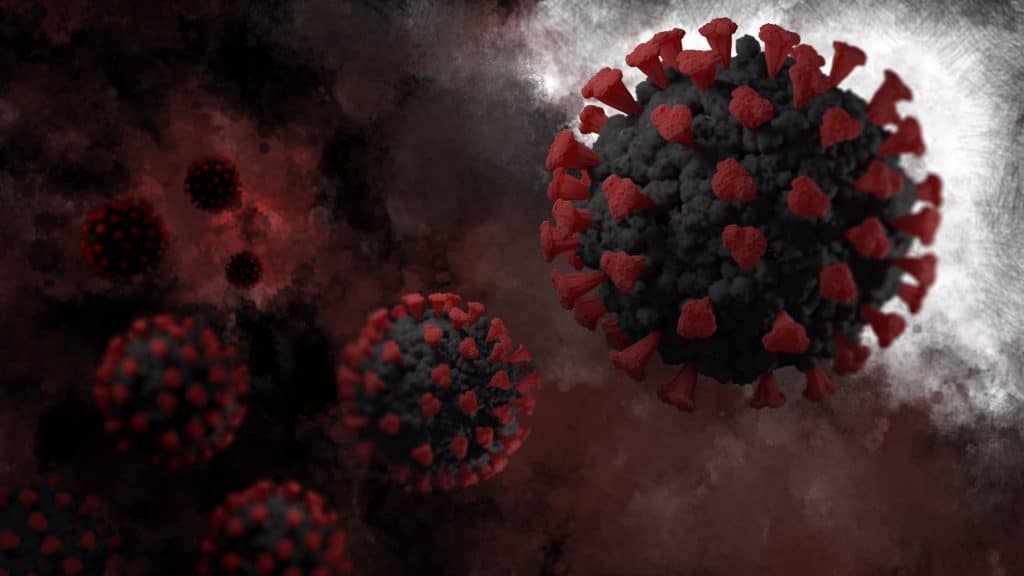This analysis by Giovanni Coletta was originally published by the UK-based intelligence organization, Grey Dynamics
Not just Sun Tzu and his iconic Art of War. The Chinese are likewise familiar with Clausewitz’s most famous adage, as it appears that Covid-19 can be the continuation of politics by other means. And to be precise, the continuation of their Belt Road Initiative (BRI) by other means, particularly in European countries such as Italy, which has been lately favouring the unrolling of the project, offering its warm shores for the Asian cargos to safely touch land.
With Covid-19 crisis hitting Italy the hardest, Xi Jinping wasted no time. Boxes of medical supplies, even a team of doctors, were speedily shipped to assist the Italian ally and alleviate the dramatic grip of coronavirus.[1] Just as quickly, media started praising Xi Jinping as a saviour, deftly leveraging the emotion caused by the tragedy to maximise the positive portrayal of the Chinese dominus. Similarly, fearing to be overshadowed by the eternal Chinese friend/foe, Putin did his part as well, sending a batch of supplies.
A commendable act of generosity, of course; but the shipping of medical supplies also served a precise agenda. The suspicion strengthened with the increase in Chinese media references to the reported Italian & worldwide gratitude towards China and its priceless contribution towards the resolution of a global crisis. Such references seemed to echo similar media efforts to depict the crisis as originated elsewhere than China, which was if anything a victim and yet acting in the first line of defence against the invisible enemy.[2]
This went along with mentions of Xi Jinping generously providing in time of need where EU allegedly was not. Looking at the bigger picture, it appears clear that Xi benefitted from the delivery of medical aid much more than Italians did.
And the very same could be said about the Russian ally if we think that most of the medical aid provided by Moscow reportedly turned out to be of little use if no use at all.[3] Another act of commendable generosity, which allowed in turn officials of the Russian Ministry of Defence to stroll freely in areas surrounding the NATO military base located in north Italy’s town of Vicenza, as reported by Italian daily La Stampa.[4]
Little will probably have Putin bothered from Italian PM Giuseppe Conte denying claims that the Russian medical supplies could alter Italy’s traditionally Atlantic geopolitical stance.[5] Putin was already celebrated as another saviour, brave enough to visit Covid-19 patients and making up for a deadbeat Europe, with the precious help of the Russian army of bots and trolls.[6] Call them fake news – or government propaganda, if you like the old-fashioned world.
This was the conclusion of a report published on 1 April 2020 by EuDisinfo, a unit of the EU’s East StratCom Task Force monitoring misinformation campaigns.[7] A recurrent misinformation theme, the report found, was that China and Russia were helping Italy while the EU was not. The report mentioned a series of statements cited by Deutsche Welle (DW), as released by China Policy Center director Yun Jiang, claiming that the Chinese misinformation campaign seemed to serve the double purpose of improving Xi’s international reputation, but to also demonstrate how a dictator, as perceived by the West, proved better at handling the crisis.[8]
Supporting this claim, the report also cited independent newsroom ProPublica’s investigation into an alleged Twitter “propaganda machine” scheme.[9] According to the article, this consisted of over 10,000 suspected fake accounts linked to the Chinese government coordinating an elaborate misinformation campaign centering the coronavirus outbreak.
But misinformation campaigns run online no faster than cyber threats, especially when the former clear the grounds for, or support, the latter.[10] With the Old Continent brought to its knees by an unprecedented pandemic, malicious cyber actors have likewise seen great opportunities to expand their illicit activities. As explained by a sector expert, cyber threat actors have promptly leveraged the pandemic “to steal from, exploit and disrupt organisations.”[11]
The heightened risk does not only pertain to corporations, with their employees being more vulnerable to attacks when working from home, particularly in terms of phishing attacks[12], and their IT departments struggling to ensure a full and quick recovery remotely.
The risk also concerns public and governmental entities, particularly in the healthcare sector, as demonstrated by the reported sharp increase in cyber attacks targeting such organisations since the start of the Covid-19 crisis.[13] These included, for instance, the US Health and Human Services Department [14], the WHO [15] as well as European hospitals.[16]
In this context, the distance between misinformation and cybercrime have well shortened. Financial gain appears to remain at the top of motivations, with various COVID19-themed purposes, including the sale of counterfeit medical equipment, such as face masks or hand sanitizers, and others more traditional, such as fraudulent attempts to obtain charitable donations.[17]
But ideologically-driven attacks are on the rise as well, and it is right in politically-motivated attacks where the link between disinformation and cybercrime is the strongest. According to a blog post published by cybersecurity firm Digital Shadows, even when it does not cause a major financial impact, misinformation as a cyber weapon “can still be used to cause panic, incite racism and xenophobia, promote harmful homemade cures, and result in shortages of supplies and critical medical equipment.”[18]
Experts continue urging organisations to constantly remind their employees of how crucial it is to never let the guard down while working from home.[19] With cyber threats teeming across the Internet, greedily waiting to ambush their online prey, it is certainly paramount to make employees aware of what specific threats are associated with the pandemic. And, it goes without saying, to be prepared for recovery.
A world addicted to the speed and immediacy had to inevitably crash against a crisis in which the effects of our actions today will only be seen in two weeks time. There is no social media powerful enough to speed up the effects of nature, in the same way as it would relaunch a piece of breaking news. The same cannot, however, be said about malicious actors, both off and online, which conversely are exceptionally good at spotting our bewilderment. Following Clausewitz’s wisdom, they are also good at making a crisis a tool to pursue their agenda. They know that, as Sun Tzu famously said, amid the chaos, there always are great opportunities.
If organisations adopt this logic with the same opportunism – that is, if they learn from this tragedy how to get their staff ready to work from home in no time, hardening themselves with robust cyber defence and nurture a cybersecurity culture – this pandemic crisis will not have been entirely useless. And since we never know what other crisis might be waiting for us, this is where the next big game will be played, COVID-19 or not
About the author: Giovanni Coletta
Giovanni Coletta currently works as an associate consultant in Control Risks. He previously worked as an intelligence analyst in the private security sector and as a fraud investigator in Amazon UK. He holds a bachelor degree in international relations and two MAs, respectively in intelligence studies and national security.
Article Citations:
[1] https://www.ilriformista.it/coronavirus-la-cina-aiuta-litalia-inviando-medici-cinesi-esperti-del-covid-19-lo-combatteremo-insieme-61019/
[2]https://www.repubblica.it/esteri/2020/04/01/news/coronavirus_le_fake_news_che_destabilizzano_l_ue_a_favore_di_russia_e_cina-252885347/
[3] https://foreignpolicy.com/2020/03/30/russia-china-coronavirus-geopolitics/
[4] http://www.ow7.rassegnestampa.it/MinisteroAffariEsteri/PDF/2020/2020-03-25/2020032544895734.pdf
[5] https://video.sky.it/news/politica/conte-nostra-collocazione-geopolitica-non-condiziona/v583545.vid
[6] https://theins.ru/antifake/209136; https://formiche.net/2020/03/russia-propaganda-coronavirus/
[7] https://euvsdisinfo.eu/eeas-special-report-update-short-assessment-of-narratives-and-disinformation-around-the-covid-19-pandemic/
[8] https://www.dw.com/en/how-chinese-propaganda-is-reframing-the-coronavirus-narrative/a-52796337
[9] https://www.propublica.org/article/how-china-built-a-twitter-propaganda-machine-then-let-it-loose-on-coronavirus
[10] https://www.digitalshadows.com/blog-and-research/how-cybercriminals-are-taking-advantage-of-covid-19-scams-fraud-misinformation/
[11] https://www.youtube.com/watch?v=SBAv0PScX_4
[12] https://www.podbean.com/media/share/pb-j24yw-d66e95?utm_campaign=w_share_ep&utm_medium=dlink&utm_source=w_share
[13] https://www.securityworldmarket.com/int/News/Business-News/during-covid-19-no-one-is-immune-to-cyber-attacks
[14] https://www.bloomberg.com/news/articles/2020-03-16/u-s-health-agency-suffers-cyber-attack-during-covid-19-response
[15] https://www.reuters.com/article/us-health-coronavirus-who-hack-exclusive/exclusive-elite-hackers-target-who-as-coronavirus-cyberattacks-spike-idUSKBN21A3BN
[16] https://www.ansa.it/sito/notizie/topnews/2020/04/01/fallito-attacco-hacker-spallanzani_5227d9f6-929b-43e6-97a0-75e88178fc9e.html: https://www.independent.co.uk/life-style/gadgets-and-tech/news/nhs-hack-coronavirus-cyber-attack-data-breach-leak-covid-19-a9445846.html
[17] https://www.digitalshadows.com/blog-and-research/covid-19-companies-and-verticals-at-risk-for-cyber-attacks/
[18] https://www.digitalshadows.com/blog-and-research/how-cybercriminals-are-taking-advantage-of-covid-19-scams-fraud-misinformation/
[19] https://www.youtube.com/watch?v=SBAv0PScX_4



